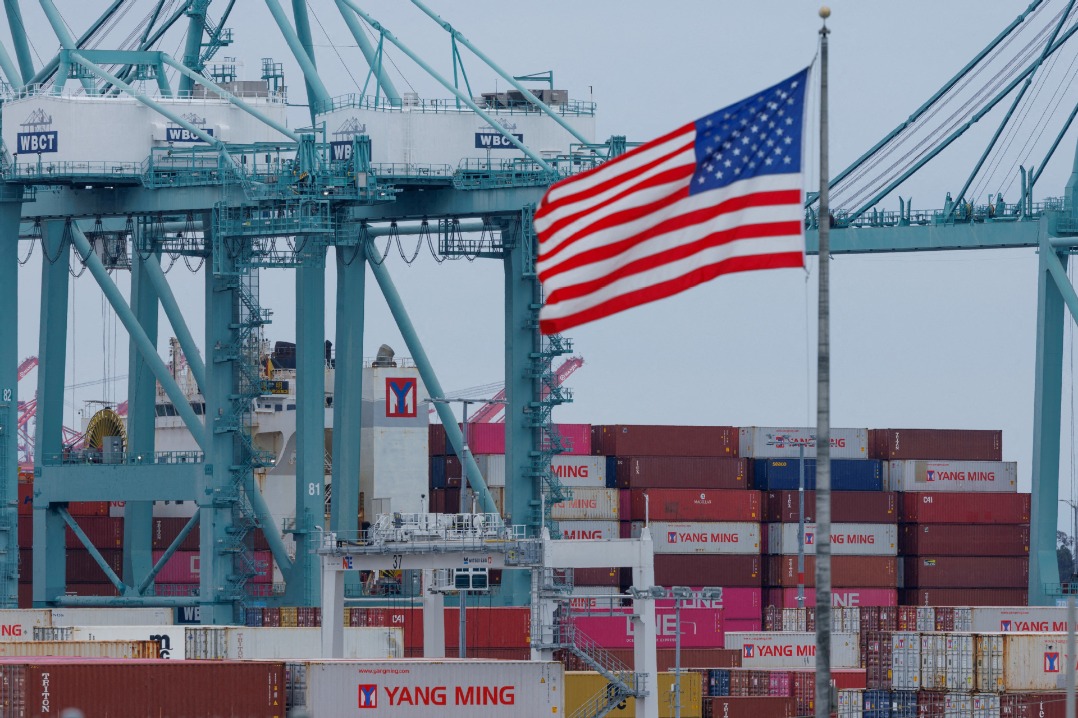Setting the scene


With China's movie industry expanding rapidly, the time may be right for domestic filmmakers to turn out productions for a global audience
Aformer Chinese special forces member beat a bunch of street racers from Hollywood handsdown in the battle for the China box office last year.
Homegrown production Wolf Warrior 2 brought in 5.7 billion yuan ($890 million)-more than twice the second-biggest taker, The Fate of the Furious, the most recent installment of The Fast and the Furious franchise, which earned 2.7 billion yuan.
With the country's box-office receipts on the upward trajectory in recent years, and Chinese moviegoers embracing domestic films with gusto, local moviemakers are now aiming for greater heights: Making a Chinese movie that can appeal to a global audience.
Even as the country's movie industry seeks to produce films with strong Chinese elements, it also needs to figure out how to make waves at the international box office in an era of glossy blockbuster productions from Hollywood.
"When you think of Chinese films, what comes to mind for most people are wuxia (martial hero) or kung fu movies that began with Bruce Lee," said Po Hou, a media and entertainment managing partner at Deloitte China.
Now could be the time to embark on a revamp of what is considered a Chinese production. Though it is still early days, some signs have been promising.
Born in China, a nature documentary film by Chinese director Lu Chuan, became a modest success in the United States, landing in sixth place at the box office on its debut last year.
A Chinese animated feature, Little Door Gods, took $9.5 million on its US debut in 2016, having roped in award-winning talent like Meryl Streep, Nicole Kidman and Edward Norton for voiceover duties.
Hou said that animation is a good place for China to start exploring projects to export internationally. Animated features have a track record of pulling in huge numbers, globally and in China. The Jungle Book, Zootopia and Finding Dory were 2016's second, third and fifth most-profitable films worldwide, corresponding with their box-office showing in China.
"Animations have universal appeal. They also reduce the need for studios to rely on big-name celebrities, whose box-office draw is vulnerable to bad publicity or even human things like age, health conditions or language barriers. Animations are reliable media and also more flexible in merchandising considerations," Hou said.
China Media Capital helped DreamWorks with the wildly successful Kung Fu Panda 3, released in early 2016.
The animated film marked the first project for Oriental DreamWorks, a joint venture between DreamWorks Animation and its Chinese partners including China Media Capital.
Chinese companies have been looking to cash in on Hollywood magic by bankrolling film companies. But trying to appeal to both Hollywood and China can be a tricky balancing act.
The Great Wall, a 2016 project under an ongoing partnership between Universal Pictures and Legendary Entertainment, did not live up to commercial or critical expectations. This was despite having acclaimed Chinese director Zhang Yimou and Hollywood A-list actor Matt Damon involved.
Legendary recently became a subsidiary of Chinese conglomerate Dalian Wanda Group. Dalian purchased the film company for $3.5 billion in a highly publicized deal in 2016.
Another collaboration, Kong: Skull Island, also met with tepid response at the box office last year. The King Kong franchise reboot grossed just $566.7 million worldwide against a $185 million production budget and $136 million in marketing costs.
Recently, two minority stakeholders exited their investments in Legendary, which were made through Dalian Wanda Group. Oceanwide Holdings and Zhejiang Huace Film& TV were expecting a 15 percent return on their $236 million investment because Wanda had planned to take Legendary public on the stock market. But its failure to do so, which observers speculate may be due to the recent projects, caused the investors to get cold feet and pull out.
In other stumbling blocks for the industry, phone maker Xiaomi downsized its movie division Xiaomi Pictures, and copper processor Anhui Xinke New Materials pulled out of a deal to acquire Hollywood production studio Voltage Pictures for $345 million.
But despite these setbacks, Chinese companies remain eager to get involved in making films.
China Media Capital, an investment fund backed by the Chinese government, had previously announced a joint venture with Warner Bros called Flagship Entertainment.
Hong Kong-based Flagship will also operate from offices in Beijing and Los Angeles. The company already has 12 Chinese-language projects lined up, including a Chinese remake of the Sandra Bullock hit Miss Congeniality from 2000.
"Chinese tech giants Baidu, Alibaba and Tencent have all made investments in this area. Tencent has Tencent Pictures (behind last year's Wonder Woman) and Alibaba has Alibaba Pictures (in projects like Mission: Impossible-Rogue Nation from 2015)," said Jonathan Chiu, a business analyst at consultancy A&A.
Chiu believes that these investments help the tech giants expand into the film industry and also grow their other ventures in creative ways.
"Some have been rather creative with their approach, like Baidu's iQiyi streaming service which has ambitions to become the Netflix of China. There are also mobile payment services from Alibaba's AliPay and Tencent's WeChat that have achieved a 70 percent penetration rate with movie ticket sales," he added.
Chiu said that data on moviegoers gathered by these tech companies' services will create valuable marketing databases, which they can also use to inform their filmmaking decisions.
But it is not just Hollywood movies that Chinese companies are getting involved with. Homegrown productions, making serious waves in the Middle Kingdom, remain a viable
investment.
The movie that made the biggest splash in China in 2016 was a Chinese- language film called The Mermaid. The fantasy film helmed by Stephen Chow (of Kung Fu Hustle and Shaolin Soccer fame) raked in $526 million in China, and its success was a key contributor to growth in box-office revenues of more than 50 percent in the first quarter of 2016.
Last year the trend continued, thanks to Wolf Warrior 2, whose boxoffice receipts broke The Mermaid's record as highest grossing movie in China.
"Though they enjoy Hollywood flicks, Chinese audiences love seeing familiar sights and their culture on the big screen. That's why domestic films have made such a strong impact at the box office. There are lots of nuances and a sense of humor that's specific to that audience," said Hou at Deloitte China.
While the advantage of being a cultural insider has helped Chinese films succeed at home, it may not necessarily translate to overseas success.
"Chinese consumer tastes are fundamentally different from (those of) other audiences. What sells well in China, usually only works there," Hou pointed out.
Bankrolling bigger, international films may lend the domestic industry some experience to produce more movies with global appeal.
"The maturity level of the industry is still behind (that of) players like the US, India and (South) Korea. Partnerships like the one between Wanda and Legendary can help accelerate the growth," Hou said.
He noted that the industry has already made great strides in the area of post-production.
"Traditionally, it was the US, then Australia and Canada, that film studios went to for their post-production needs. With one-third of the budget usually going toward that, it's an important part of filmmaking.
"China has been winning contracts from the big six Hollywood studios through its growing expertise and connections through those partnerships," Hou said.
As China's movie companies grow creatively, they can apply their upgraded skills to their own productions. But post-production is only part of the process.
"A strong script and better storytelling methodology is what Chinese producers need to gain international appeal. A story with Oriental elements, Western production values and storytelling, combined with global production and distribution machines, could make for a Chinese movie that can win global hearts. That can only be done now through coproduction," Hou explained.































